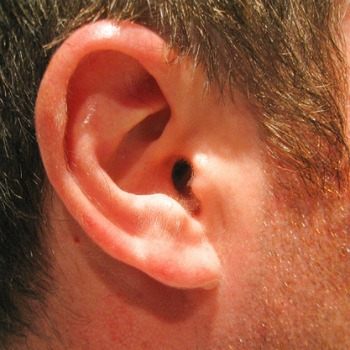BROOKE GLADSTONE: During that midweek lull, we also asked listeners to let us know what kind of coverage they wanted to see in the absence of new information, and many responded. We spoke to three of them, Alex Hoffman, a 41-year-old education researcher from New Haven, Connecticut, Kat Danielsen, a 28-year-old theater technician from Milwaukee and Roland Dumas, a 62-year-old psychologist from San Mateo, California. Roland explained what he wanted to hear from TV anchors when the news flow slows.
ROLAND DUMAS: Say what they know, say what they don’t know. If there’s unconfirmed rumors, say those are rumors; they’re not confirmed and then either repeat it and, [LAUGHS] and don’t expand or go back to your regular programming. After they’ve exhausted their information, they keep talking. And when they keep talking, the best they can do is add no value. The worst they can do is feed emotion, prejudice. When they run out of data, they just fill it with blather.
BROOKE GLADSTONE: Alex, you wrote very directly what it was you don’t want to see.
ALEX HOFFMAN: I don't want the appeal to emotion, the grabbing for emotional unity and connection through this mass media.
BROOKE GLADSTONE: Why not?
ALEX HOFFMAN: I think that that role in largely being filled by social media. I'm looking for things that I can't get from my friend. These major media outlets, they should be curating information. They should be finding experts, people who know more than we do, who have better perspective than we do. Making me feel more emotional doesn’t help me to make sense of any of these kinds of mass disasters.
BROOKE GLADSTONE: Kat Danielsen, what do you think of what Alex just said?
KAT DANIELSEN: The intent of a bomber to create a negative emotional response, focusing on that negative really just gives them what they want. I would really prefer to see the good that everybody is doing and how much we have the capability to prevail over something like this.
ALEX HOFFMAN: I'm not saying that that shouldn't be covered, but I wouldn’t want to put a filter on coverage that only gives us the positive and uplifting.
KAT DANIELSEN: That's not what I'm looking for. I want to know what happened. I want you understand what happened. But I don't want to hear basically what I consider horror-mongering. If you need it to fill the air, what I would like to see, once you’re done with all of the facts, is stories of how people can help and how people are changing things for the better.
BROOKE GLADSTONE: Can I ask you guys what you have been watching so far this week? We’re speaking on Thursday.
ALEX HOFFMAN: Well, we’re all NPR junkies, right?
[ROLAND LAUGHS]
BROOKE GLADSTONE: [LAUGHS] So are most of your complaints then directed to what you heard on public radio, if that’s where you stayed tuned?
ROLAND DUMAS: No, CNN is the, is the biggest offender.
BROOKE GLADSTONE: [LAUGHS] Roland.
ROLAND DUMAS: I accidentally clicked on CNN, and they had all of these clips, and that’s where I got the wild speculation. And I realized that it’s news spam, in that the link or the station that says we know five things is gonna get more listeners or viewers than the one that says we know two things.
ALEX HOFFMAN: I’ve got to say that a lot of my comments are coming from my using the NPR news app to listen to [LAUGHS] the WBUR feed, not just CNN. The criticisms that I have voiced in this conversation apply to WBUR, as well.
KAT DANIELSEN: I was actually at a family member’s house and they had on CNN. They just kept showing the same clips over and over again, and it was always the most horrifying clip seen a good ten times in the 30 minutes that we were watching, before we turned it off and discussed.
ROLAND DUMAS: In the evening I turn on my news and I see my local San Francisco station had put a talking head and a cameraman on a plane to go to Boston to stand out in the location and basically read the cue cards left by the national reporters, you know, just to show that there’s a local presence there. I was just furious that they’re spending their money and wasting my attention to add zero information.
BROOKE GLADSTONE: I’m suspecting that maybe the three of you are in a little bit of denial about the need to connect with a national community when this kind of thing takes place. Am I totally off-base there?
ALEX HOFFMAN: Yeah –
ROLAND DUMAS: You’re off base –
[SEVERAL AT ONCE/BROOKE LAUGHS]
Way off base.
BROOKE GLADSTONE: [LAUGHS] Many thanks to listeners Alex Hoffman, Kat Danielsen and Roland Dumas.
[MUSIC/MUSIC UP & UNDER]

